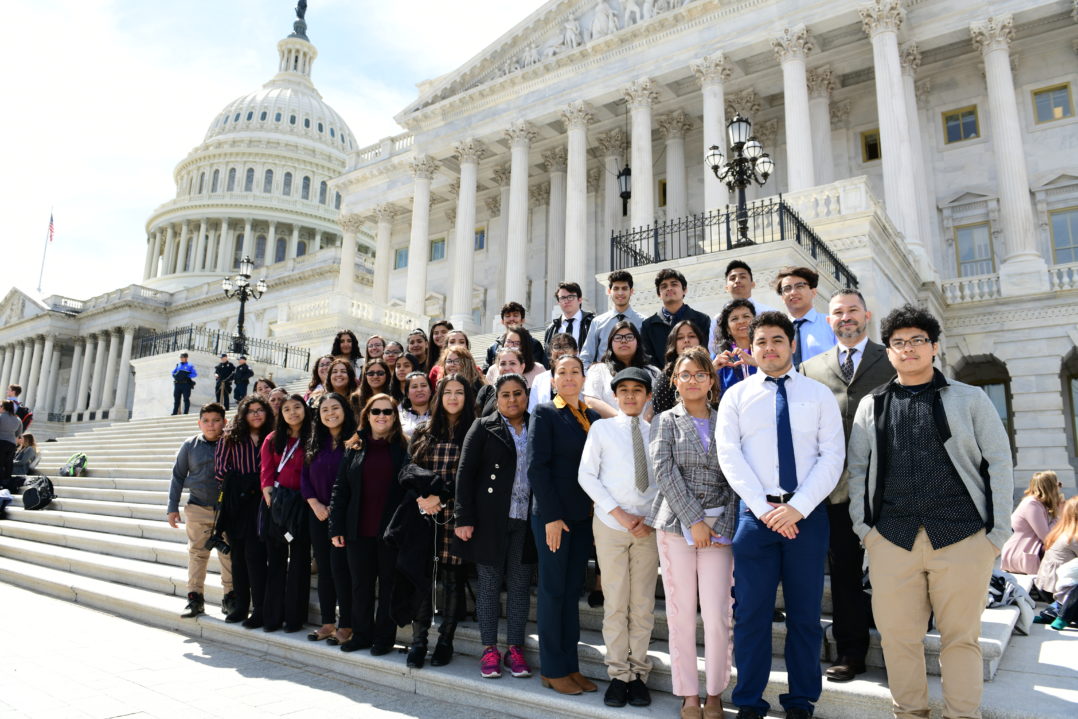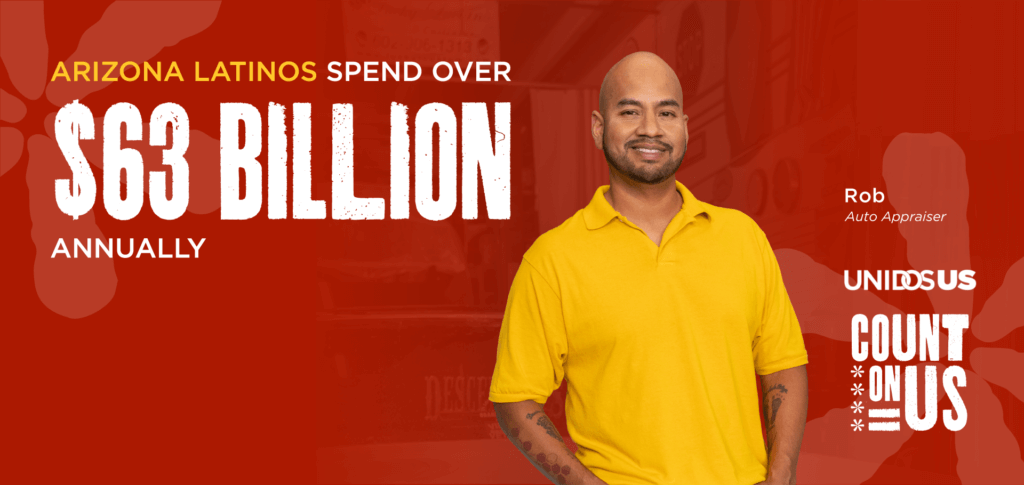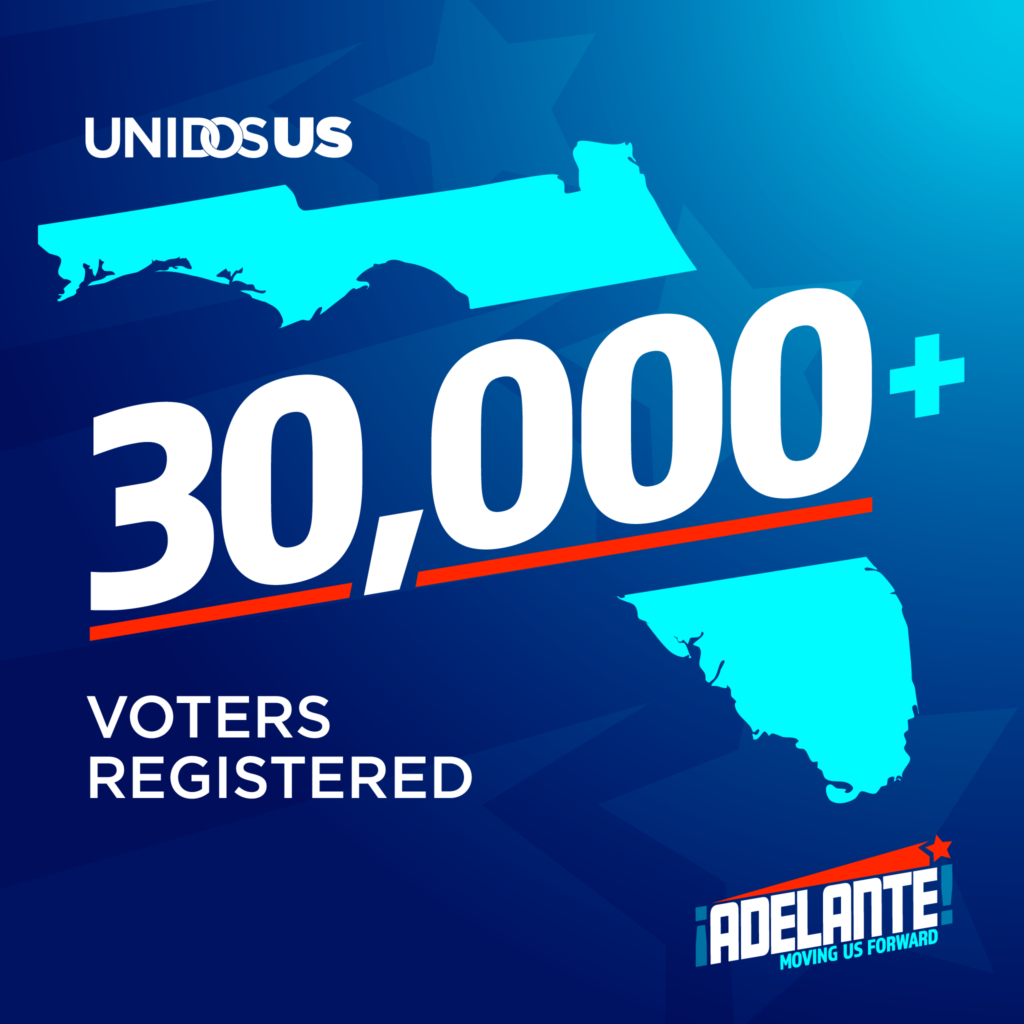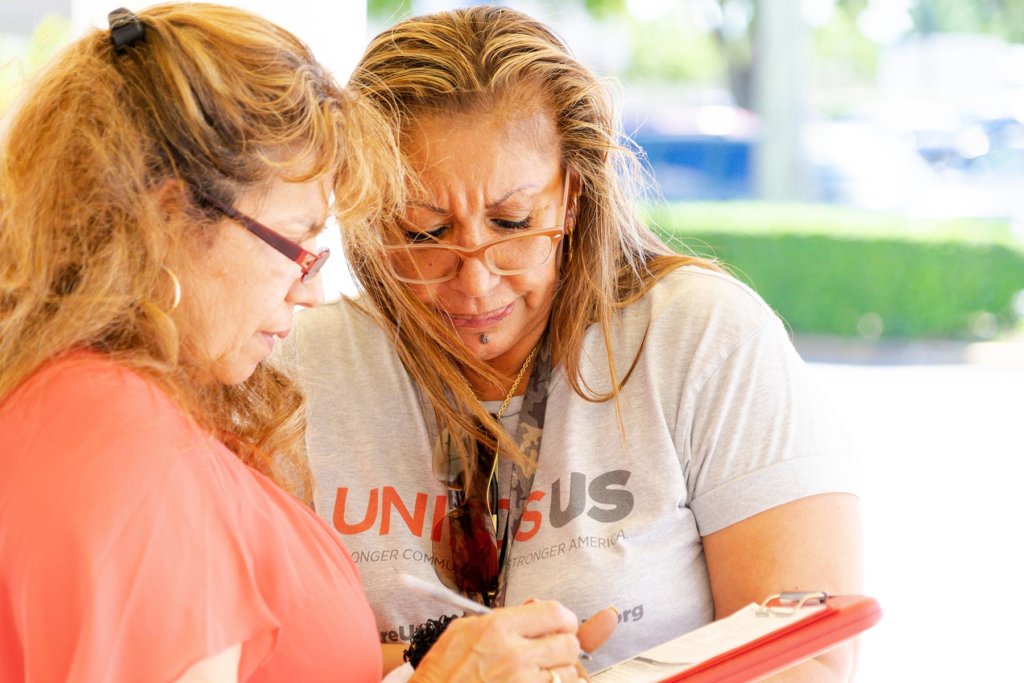UnidosUS Invites Students and US Legislators to Discuss the Higher Education Act at Forums Across the Nation

By Amanda Martinez, Policy Analyst, UnidosUS Policy Project (Higher Education)
It’s spring semester and you just learned that your international business midterm will determine one-third of your overall grade in the course, increasing the pressure to succeed and possibly determining your decision to commit to becoming a Latina entrepreneur. While you are working diligently to prepare, this is a stressful point in the semester where the juggling act of being a first-generation college student, working parent, and part-time work against one another and place your homework at the bottom of your to-do list.
Does a scenario like this represent you or someone you know? Chances are high because balancing acts like these are common among Latinx undergraduate students, who now make up 19% of the total undergraduate population.Today’s Latino undergraduate population is made up largely of non-traditional college goers who are more likely to women, low-income, financially independent, first-generation, and attending school part-time. These characteristics present both opportunities and challenges as Latinos continue to face great barriers within the American higher education system compared to their White counterparts.
It’s important to note a few key gaps:
- In 2016, Latinos age 25 years and over are still only half as likely as Whites to have a bachelor’s degree (15% compared to 35%).
- In 2017, at two-year public institutions—where most Latino students are enrolled—only 21% of Latinos graduated, compared to 27% of White students.
- The graduation rate for Latinos in four-year institutions was 54% compared to 64% for White students.
- In 2016, the average cost of college—after subtracting expected family contributions (EFC) and all grant aid—for Latinos was over $8,700, higher than the average cost for White students ($8,060).
- Nearly half of Latino undergraduates (47%) received a Pell Grant compared to (31.5%) of Whites in the 2015-106 academic year. The Pell Grant is a federal program that assists low-income students finance college.
Congress plays a central role in eliminating these disparities and empowering Latinx college students’ by reauthorizing the Higher Education Act (HEA)—the primary federal law providing funding to students and postsecondary institutions. Signed in 1965 by President Lyndon B. Johnson alongside core civil rights legislation, HEA unlocked the door for many low- and middle-income students to access higher education and experience economic mobility for the first time. As the nation’s leading Latino civil rights organization, it is imperative we restore the HEA’s civil rights promise in any reauthorization.
Luckily, after more than a decade, the House Education and Labor Committee passed the College Affordability Act (CAA), pushing us closer to an HEA update. While the CAA still requires some improvements, we wanted to highlight some key provisions we think will advance Latino outcomes in higher education.
- Offers undocumented students’ access to federal financial aid (Pell Grant, college prep programs, TEACH Grant, federal student loans, and others).
- Simplifies the FAFSA by allowing students who filed the application in their first year to complete it once.
- Increases funding for Hispanic Serving Institutions, with extra money for STEM and articulation programs.
- Increases the Pell Grant by $625 for AY2020-2021.
- Increases investment in college preparatory programs like TRIO and GEAR UP (Gaining Early Awareness and Readiness for Undergraduate Programs)
- Simplifies federal student loan repayment plan options from eight to two plans (fixed repayment plan and income-based repayment plan).
- Expands student loan borrower discharge and loan forgiveness benefits.

Opportunities to Engage
This spring, UnidosUS will be hosting four student-centered forums at universities across the United States to engage students on these issues. We have also invited several Congressional members from the House Education and Labor Committee to join the discussion.
Texas Congressman Joaquin Castro, the current chairman of the Congressional Hispanic Caucus, will join our event at St. Mary’s University in San Antonio, where he is also a visiting professor. Committed to supporting higher education access, he created the Trailblazers College Tour, a program that sends underrepresented students on college visits. Florida Congresswoman Donna Shalala will join our event at Miami Dade College. She previously served as the U.S. Secretary of Health and Human Services (HSS) during the Clinton Administration, as president of the University of Miami from 2001 to 2015. Meanwhile in Arizona, Congressman Raul Grijalva, the Education Labor Task Force Chair for the Congressional Hispanic Caucus, has tentative plans to join us at Arizona State University.
Below is a comprehensive calendar of our events with additional information.
MARCH 7TH, 11 AM-1 PM AT HOUSTON COMMUNITY COLLEGE, HOUSTON, TX
MARCH 17TH, 12 PM-2 PM AT ARIZONA STATE UNIVERSITY
MARCH 19TH, 12:30 PM-2:30 PM, MIAMI DADE COLLEGE





